第351章 Chapter 2(4)
Indeed, Sophy, you do not know how I love you, indeed you don't, or you never could have run away and left your poor father, who hath no other joy, no other comfort upon earth, but his little Sophy." At these words the tears stood in his eyes; and Sophia (with the tears streaming from hers) answered, "Indeed, my dear papa, I know you have loved me tenderly, and heaven is my witness how sincerely Ihave returned your affection; nor could anything but an apprehension of being forced into the arms of this man have driven me to run from a father whom I love so passionately, that I would, with pleasure, sacrifice my life to his happiness; nay, I have endeavoured to reason myself into doing more, and had almost worked up a resolution to endure the most miserable of all lives, to comply with your inclination. It was that resolution alone to which I could not force my mind; nor can I ever." Here the squire began to look wild, and the foam appeared at his lips, which Sophia observing, begged to be heard out, and then proceeded: "If my father's life, his health, or any real happiness of his was at stake, here stands your resolved daughter; may heaven blast me if there is a misery I would not suffer to preserve you!- No, that most detested, most loathsome of all lots would I embrace. I would give my hand to Blifil for your sake."- "I tell thee, it will preserve me," answers the father; "it will give me health, happiness, life, everything.- Upon my soul Ishall die if dost refuse me; I shall break my heart, I shall, upon my soul."- "Is it possible," says she, "you can have such a desire to make me miserable?"- "I tell thee noa," answered he loudly, "d--n me if there is a thing upon earth I would not do to see thee happy."-"And will not my dear papa allow me to have the least knowledge of what will make me so? If it be true that happiness consists in opinion, what must be my condition, when I shall think myself the most miserable of all the wretches upon earth?" "Better think yourself so,"said he, "than know it by being married to a poor bastardly vagabond.""If it will content you, sir," said Sophia, "I will give you the most solemn promise never to marry him, nor any other, while my papa lives, without his consent. Let me dedicate my whole life to your service;let me be again your poor Sophy, and my whole business and pleasure be, as it hath been, to please and divert you." "Lookee, Sophy,"answered the squire, "I am not to be choused in this manner. Your aunt Western would then have reason to think me the fool she doth. No, no, Sophy, I'd have you to know I have a got more wisdom, and know more of the world, than to take the word of a woman in a matter where a man is concerned." "How, sir, have I deserved this want of confidence?" said she; "have I ever broke a single promise to you? or have I ever been found guilty of a falsehood from my cradle?""Lookee, Sophy," cries he; "that's neither here nor there. I am determined upon this match, and have him you shall, d--n me if shat unt. D--n me if shat unt, though dost hang thyself the next morning."At repeating which words he clinched his fist, knit his brows, bit his lips, and thundered so loud, that the poor afflicted, terrified Sophia sunk trembling into her chair, and, had not a flood of tears come immediately to her relief, perhaps worse had followed.
Western beheld the deplorable condition of his daughter with no more contrition or remorse than the turnkey of Newgate feels at viewing the agonies of a tender wife, when taking her last farewell of her condemned husband; or rather he looked down on her with the same emotions which arise in an honest fair tradesman, who sees his debtor dragged to prison for L10, which, though a just debt, the wretch is wickedly unable to pay. Or, to hit the case still more nearly, he felt the same compunction with a bawd, when some poor innocent, whom she hath ensnared into her hands, falls into fits at the first proposal of what is called seeing company. Indeed this resemblance would be exact, was it not that the bawd hath an interest in what she doth, and the father, though perhaps he may blindly think otherwise, can, in reality, have none in urging his daughter to almost an equal prostitution.
In this condition he left his poor Sophia, and, departing with a very vulgar observation on the effect of tears, he locked the room, and returned to the parson, who said everything he durst in behalf of the young lady, which, though perhaps it was not quite so much as his duty required, yet was it sufficient to throw the squire into a violent rage, and into many indecent reflections on the whole body of the clergy, which we have too great an honour for that sacred function to commit to paper.